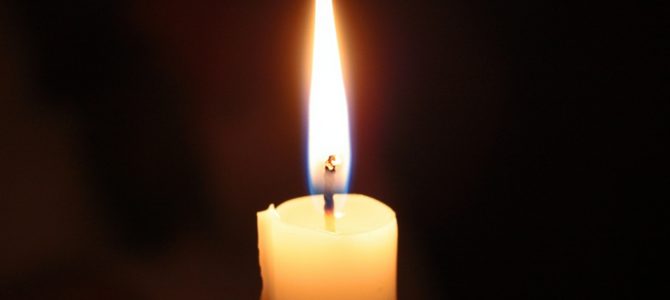
Holy Saturday is the forgotten day amidst Holy Week. Christians remember the institution of the Eucharist and the priesthood on Holy Thursday, the brutality of Jesus’ sacrificial suffering on Good Friday, and the empty tomb on Easter Sunday. Yet Holy Saturday often remains in the shadows. It’s within such dark moments, however, when fear and hiding are our temptations, that we must recall relentless hope and enduring life.
What Holy Saturday arguably teaches us most is about our humanity. Traditionally, this is a solemn day for mourning. We are called to act as if someone beloved in our family has died; we are asked to consider what it would have been like if we were close friends of Jesus when his life was taken. This is not mere spiritual pageantry — it’s where the rubber hits the road. When someone dear is taken from us, we once again realize that man was not made to be alone.
Christians traditionally hold a view of human nature that highlights the fact we are made for relationships, that we need each other. In 2020, darkness, despair, and death hovered over our existence, while coronavirus is implicated in the deaths of 540,000 Americans and well over two million across the globe. Quarantines left countless people alone, forced to sit in isolation.
Sadly, statistics show rates of anxiety, depression, and suicide skyrocketed as a result of the pandemic. More than 17 million Americans suffer from depression and 40 million experience anxiety while The National Alliance on Mental Illness HelpLine notes a 65 percent increase in calls and emails since March of 2020. All of this to say that human beings reap awful results when we suffer alone and convince ourselves this world is all there is.
Holy Saturday offers a remedy. The entire Christian message stands as a countercultural emblem that shouts out to a suffering world that hope truly does reign.
Hope is not blind trust nor a mental exercise in spiritual roulette that an outcome will turn out exactly as we desire. Hope is a condition in friendship when you know your friend is with you, even when he is not physically next to you. Hope is the capacity to see that we are never truly alone and that God can overcome any obstacle, even death.
Holy Week personifies Christan hope. During Holy Saturday, we’d do well to ponder two questions in particular: First, would we have left Christ all alone in his suffering? Second, how are we being asked to journey with others in their suffering today?
Good Friday unveils the rejection of Jesus, but that denial leads to hiding for the entire weekend. We are told that Jesus appears to the disciples, on the night of the first Easter, in an upper room, where “the doors were locked, where the disciples were, for fear” that they also would be persecuted.
Of course, this means they were in hiding since they deserted Jesus on Holy Thursday evening, content with allowing fear to trump hope and love. Unfortunately, there are countless contemporary Christians who choose to ignore him and hide his importance even in these holiest of days.
The day in between Jesus’ death and resurrection stands at a pivotal juncture between despair and hope, fear and courage, death and new life. Holy Saturday was a real point in time, but it also symbolizes the current state of our world.
We are in time and place between darkness and light, destruction and renewal. We are in desperate need of looking toward brighter days for our country, politics, church, and world. The tendency to turn inwards and become individualistic must be avoided at all costs because we see more clearly now than ever before, that isolation has awful consequences.
When intense, widespread suffering strikes again — and it will — we must turn to others and embrace their presence as our hope. Holy Week acts as a prism into the cyclic nature of every person’s life. Everyone experiences times of great joy that sometimes turn into great tribulation.
The key is to always remember that trials and darkness never last forever. The empty tomb always turns up empty and our lives always recover if we hold fast to hope. In our current times, Holy Saturday is lasting more than a day but the outcome remains the same.
As we sit inside of the gloom of Holy Saturday and rightfully mourn the murder of our Lord, we must recall that the only path forward is found in our loving relationships with others and in standing firm with our God. When we focus on the reality of what happens when the women arrive at the tomb early Easter morning, we can more easily see that the present sufferings are nothing compared to the victory that awaits us.









